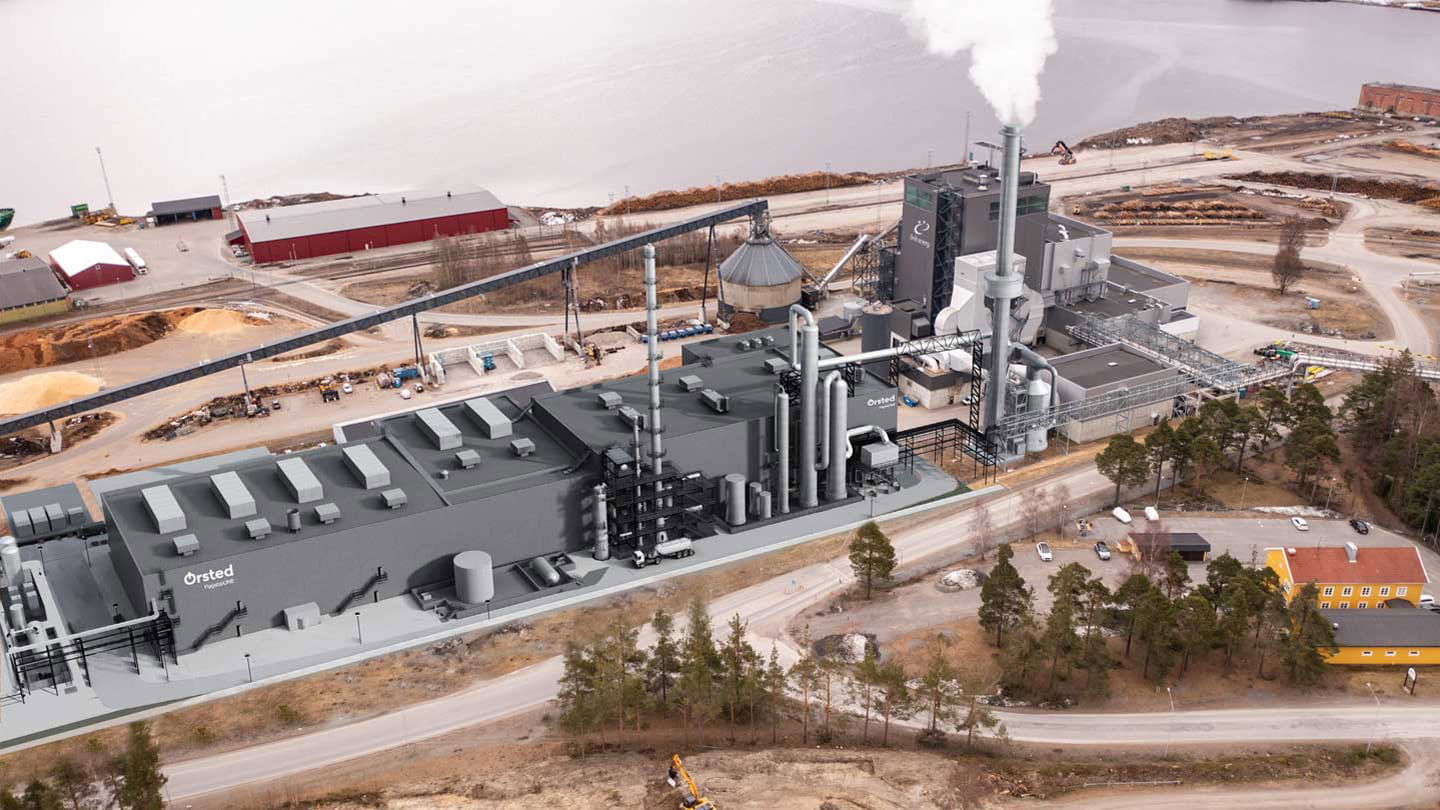What is e-methanol?
E-methanol is fuel synthesised from renewable hydrogen and biogenic carbon dioxide. Since it is not based on fossil fuels, burning e-methanol does not contribute to global atmospheric carbon dioxide emissions.
FlagshipONE is an e-methanol production facility we are building in Örnsköldsvik in northern Sweden. When it enters operation in 2025, it will produce 55,000 tonnes of e-methanol per year – enough to power one large container vessel.
This is our first commercial-scale Power-to-X project, and the largest of its kind to have reached final investment decision in Europe

We are building the project in partnership with the EU Catalyst Partnership, which includes Breakthrough Energy Catalyst, the premier investment platform for climate technologies that reduce emissions, the European Investment Bank, the world’s largest multilateral financial institution, and the European Commission.
In addition, FlagshipONE has received support from Klimatklivet through the Swedish Environmental Protection Agency.
Heavy oceangoing vessels like container ships are currently powered by some of the most polluting types of fossil fuels. As a whole, shipping is responsible for 3 % of global greenhouse gas emissions. Large ships can’t be directly electrified, as they would need unfeasibly large, heavy batteries. Instead, it is essential to develop fuel sources that aren’t based on fossil fuels. E-methanol is one of the most promising solutions.
The significance of FlagshipONE therefore goes far beyond averting the emissions of one ship per year. It shows that developers, suppliers, and investors believe that commercial scale e-methanol production is the right direction for Power-to-X in Europe.
The project has the potential to become the cornerstone of a new European industry that creates jobs, stimulates economic activity, and strengthens energy independence – all while helping cement e-methanol as the fossil-free fuel of choice for early movers in the shipping industry.
E-methanol is an example of a Power-to-X energy source. This refers to a molecular form of energy – a gas or liquid – that can be manufactured using renewable electricity, transported and stored, and then used in place of fossil fuels. Power-to-X is best suited to applications where direct electrification is not possible – ‘hard to electrify’ sectors like shipping, aviation, and steelmaking.
E-methanol is a liquid fuel synthesised from green hydrogen and biogenic carbon dioxide. At FlagshipONE, hydrogen will be produced on site, using 70 MW renewable power to electrolyse water into hydrogen and oxygen. Meanwhile, carbon dioxide will be sourced from the adjacent sustainable biomass-fired combined heat and power plant, Hörneborgsverket, owned and operated by local power company Övik Energi. Hörneborgsverket will also provide steam and water for the process. Excess heat will then be returned to Örnsköldsvik’s local district heating network.
FlagshipONE’s immediate location in Örnsköldsvik is well suited to producing e-methanol, thanks to the abundance of renewable energy in the local grid, and the area’s world-leading forestry industry.
This combination makes it cheap and easy to produce the two main ingredients for e-methanol: renewable hydrogen, and sustainable biogenic carbon dioxide. Such abundance of resources brings down the price of the e-methanol we can produce.
More widely, Sweden promises to be a key market for e-methanol production, thanks to both its forestry industry, and its growth potential for renewable energy generation like onshore and offshore wind.